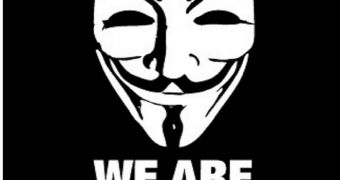The United States Federal Bureau of Investigation says the arrests of the five members of the notorious LulzSec hacker collective had “huge deterrent effects” on the Anonymous movement.
The arrests created an “added layer of distrust” among hacktivists resulting in lesser high-profile cyberattacks, Austin P. Berglas, an assistant special agent in charge of the FBI’s New York cyber division, told The Huffington Post.
Berglas believes the arrested individuals were major players in the hacktivist movement, any many looked up to them.
However, after the world learned that Sabu, one of the group’s most influential members, was actually working with US authorities against his colleagues, things changes.
“The movement is still there, and they're still yacking on Twitter and posting things, but you don't hear about these guys coming forward with those large breaches. It's just not happening, and that's because of the dismantlement of the largest players,” Berglas said.
On the other hand, McGill University Professor Gabriella Coleman says Anonymous is still here, despite the major blow suffered because of the arrests.
“They could easily emerge again as a force to contend with,” Coleman, who has been studying Anonymous, told Huffington Post.
Coleman might be right, especially since it appears the hacktivist movement has a lot of members, even in the US Army.
A couple of weeks ago, an active-duty US Army captain revealed that many of the major Anonymous operations were secretly supported by Army personnel.
“A lot of people who are part of the [Anonymous] culture are just dying at this point for something to come across their table that isn’t already out there. It is so easy to leak information that if you want to, you can do it,” he said.

 14 DAY TRIAL //
14 DAY TRIAL //